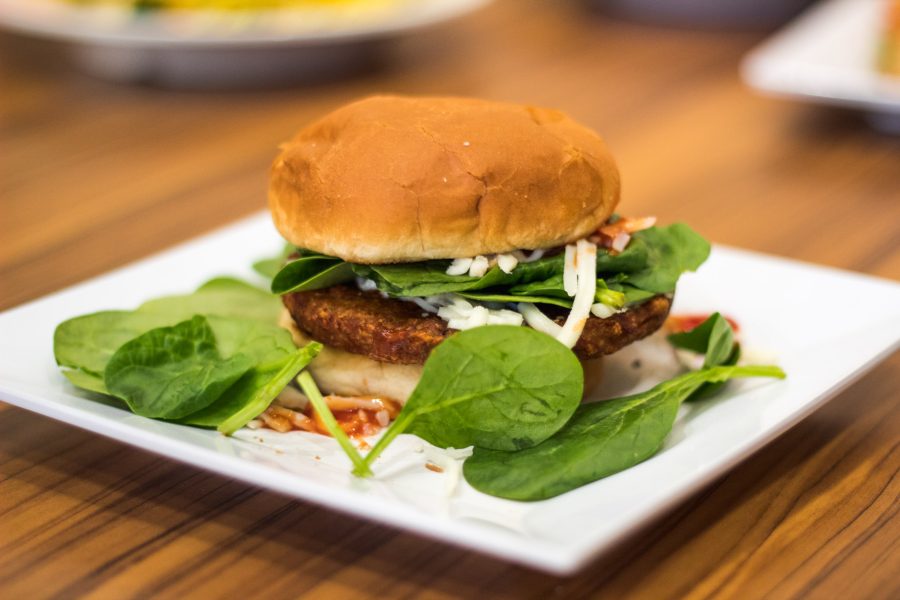When Rebecca Williams arrived at BJU, she quickly found campus life was less conducive to her vegetarian lifestyle than home.
Growing up with two vegetarian parents, Williams followed their example and has been vegetarian all her life, never eating a single piece of meat until well after her 18th birthday.
Williams is just one of many students who have vegetarian or vegan lifestyles and who are learning how to make the most of the food options in the dining common.
According to Williams, it is possible to be vegetarian on campus although options depend on the day.
Williams said vegetarian students should not rely on carbohydrates too much although those options are readily available. She said stir fry and hummus are good alternatives.
Another vegetarian, Angelica Krystyn, said she became a vegetarian at age 16. Krystyn said she likes to experiment with veggie recipes.
She even claimed that students can replace meat in nearly any recipe with a vegetarian alternative.
“There really isn’t that much of a difference,” she said.
When living on campus, Krystyn cooks many of her meals in the residence halls.
She said she does a lot of gumbo, which is an inexpensive option for money-conscious students. Krystyn also said students can find many quality vegetarian recipes on Pinterest.
“It gets to be fun, creating something unique you don’t see very much,” Krystyn said.
Melanie Schell, nutrition professor in the Division of Natural Science, said a vegetarian diet can be a healthy way to eat, but it requires a lot of commitment.
Schell said there are many variations of vegetarian diets now. Those who aren’t ready to fully forego meat can experiment with a flexitarian diet, a diet which alternate between vegetarian and non-vegetarian days.
This diet has become popular within the last five years especially among those who are attempting to regulate their cholesterol.
According to Schell, vegetarian diets are not necessarily healthier than their traditional counterparts.
“It really depends on the [food] choices you make,” Schell said. “People can make vegetarian diets healthy or unhealthy.”
Contrary to a popular belief, Schell said a vegetarian diet is not better for weight loss because it depends more on physical activity than on eating or abstaining from meat.
For example, Schell said loading on cheddar cheese, a vegetarian item, is unhealthy because it adds unnecessary fats to people’ s diets.
“A vegetarian diet does not guarantee weight loss,” Schell said.
“The most important thing you’re eliminating from your diet by eating a plant-base is saturated fat that can lead to the development of cardiovascular diseases.”
Consequently, Schell said a primarily plant-based vegetarian diet tends to be a heart-healthier diet.
According to Schell, being a vegetarian requires planning ahead.
She advised vegetarian and vegan students to research plant-based proteins, which are the hardest to get, and eating whole-wheat breads as opposed to the white breads.
She also said vegetarian students should consider eating hummus because it is a good source of protein.
“For someone who is vegetarian, eggs are a really good source of high-quality protein,” Schell said. “So if you’re eating vegetarian, eggs are going to be a really good friend.”
Schell said she encourages students to use the dining services website, bju.campusdish.com to plan and check out meals being served. She said students can click on the menus online to read a full nutritional display.
In addition, Schell also said the menus online include symbols indicating if food items are vegetarian (V) or vegan (VE). She said she recommends the dining services phone app.


























































